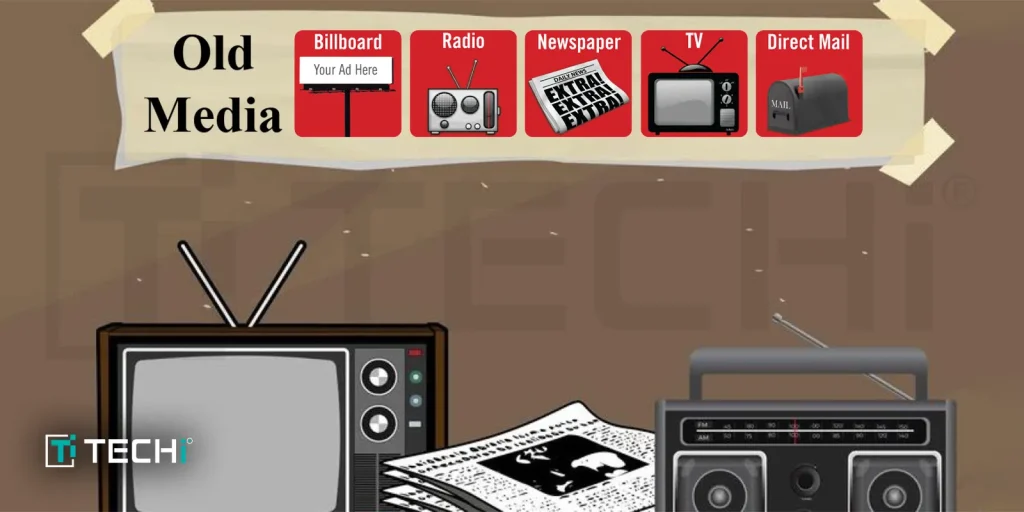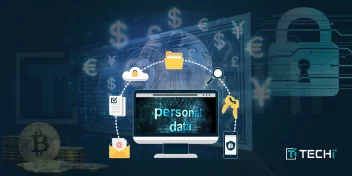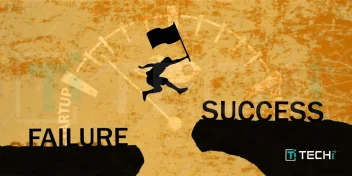Today the internet seems to have changed the information aspect, it just actually smashed the monopoly of the old media. Newspapers, television networks, and magazines once had the whole say in the news cycle. A viral tweet, a blog post, or a YouTube video can create public opinion faster than any front-page headline today. Yet, even after being around for more than a couple of decades, most of the traditional media still do not get the basic essence of the web.
They still hold on to old business models, underestimate the power of algorithms, and completely fail to grasp that audiences today require interactive engagement with the content and not just passive consumption. The web is a fast-moving, vibrant flux, whereas here credibility is built through engagement and interaction rather than just by authority. Those refusing to either change or adapt will be left behind in the dust of obsolescence.
Far removed are the old dictatorial paramount of media still out of touch with five things concerning the web.
1. People Never Wanted to Pay for the News

Traditional media has long assumed that because people once paid for newspapers, they would be willing to pay for digital news. But the reality is, that people weren’t paying for the news itself, news was just one part of a larger package. Newspapers bundled news with classifieds, weather updates, stock prices, and entertainment sections, all of which are now available online for free and in real-time. This makes selling digital news subscriptions a tough challenge.
Readers today have countless free options for news. Social media, blogs, and independent news sites provide instant updates, often faster than traditional outlets. The old model of paying for access to journalism simply does not align with modern consumer expectations. Unless media companies offer something significantly different and more valuable, people won’t pay.
- People Pay Only for Something Special: If a news site offers unique, high-quality content, some people might pay, but it has to be worth it.
- People Want Free News: If the same news is available for free elsewhere, no one wants to pay for it.
- Old Newspapers Had More Than Just News: People bought newspapers for job ads, classifieds, and entertainment, not just news.
- Social Media is Faster: Platforms like Twitter and Facebook break news instantly, often before big news websites.
- Trust Issues with Big Media: Many people think traditional news is biased, so they look for independent sources.
2. Paywalls Break the Web and Annoy Your Customers

Paywalls create a frustrating experience for readers. Imagine coming across an interesting article, clicking on the link, and immediately being blocked by a paywall demanding a subscription. Most people will simply close the tab and move on.
The web thrives on openness and sharing, but paywalls restrict access and limit the spread of information. Instead of encouraging engagement, they push readers toward free alternatives. While some premium outlets can sustain a paywall because they provide unique and valuable content, the vast majority of news sites struggle because their audience isn’t willing to pay when free sources are just a click away.
- Only Exclusive Content Can Justify Paywalls: Sites with deep investigative journalism or unique insights might succeed, but basic news won’t.
- Readers Hate Paywalls: Most people won’t subscribe just to read one article, they’ll leave and find free news elsewhere.
- The Web is Built for Sharing: Paywalls block content from spreading, making articles less influential and reducing traffic.
- Free Alternatives Win Every Time: When so much news is available for free, most people won’t pay unless the content is truly exceptional.
- Paywalls Kill Engagement: Instead of building loyal readers, they push visitors away before they even start reading.
3. The Web Needs New Solutions, Not Digital Replicas of Print

Many media companies assume that converting print articles into digital formats will attract paying subscribers. But the internet demands more than just text, it thrives on interactivity, multimedia, and innovation.
A digital newspaper that merely mimics the print experience offers no additional value. Readers expect engaging visuals, interactive elements, and real-time updates. Successful digital media outlets embrace video content, podcasts, and immersive storytelling instead of relying on static articles.
- Innovation Drives Success: The best digital platforms experiment with storytelling, AI-driven recommendations, and interactive infographics to keep audiences hooked.
- Static Text is Boring: Readers expect interactive content, not just scanned newspaper pages on a screen.
- Multimedia Wins Attention: Videos, podcasts, and animations engage users far more than plain text.
- Real-Time Updates Matter: Unlike print, digital news must evolve constantly to stay relevant.
- Readers Want a Two-Way Conversation: Comment sections, polls, and live discussions create engagement, not just passive reading.
4. People Pirate Because They Get a Better Experience

Piracy isn’t just about getting content for free, it’s about convenience. When legal options come with restrictions like DRM limitations, region locks, and excessive advertisements, piracy becomes the more attractive alternative.
The best way to combat piracy isn’t through lawsuits or crackdowns, it’s by offering a better user experience. Streaming services like Netflix and Spotify have shown that people are willing to pay for content when it is convenient, affordable, and high-quality. Instead of making access difficult, media companies should focus on making their content more appealing than the pirated version.
- Convenience Always Wins: When platforms make content easy to access at a fair price, piracy naturally declines.
- Piracy is Faster: No forced ads, no region locks, just instant access.
- No DRM Hassles: Pirated content doesn’t come with restrictions that limit how and where users can watch.
- Better Accessibility: Legal platforms sometimes remove content, but pirated versions stay available indefinitely.
- High Prices Push Users Away: Many people pirate simply because legal alternatives are too expensive.
5. Filesharing and Piracy Do Not Always Represent Lost Sales

Media companies often claim that piracy causes massive revenue losses. However, not every person who pirates content would have paid for it otherwise. Many people download content they were never planning to buy in the first place, meaning those aren’t truly lost sales.
In some cases, piracy even helps media companies by increasing exposure. Shows like Game of Thrones gained massive popularity by being widely pirated, ultimately benefiting HBO in terms of brand recognition and merchandise sales. Instead of focusing solely on preventing piracy, media companies should look for ways to convert casual viewers into paying customers.
- People Pay When It’s Easy & Affordable: Many former pirates now subscribe to platforms like Netflix, proving that convenience wins over restriction.
- Not Every Pirate is a Lost Customer: Many people who pirate wouldn’t have paid for the content anyway, so there’s no real revenue loss.
- Free Publicity Can Drive Sales: Pirated content often increases awareness, leading to more paying customers in the long run.
- Merchandise & Spin-offs Make Money: Shows and movies gain loyal fans through piracy, who then buy official merchandise, tickets, and subscriptions.
- Piracy Shows Demand: High piracy rates indicate strong interest, which media companies can capitalize on by improving accessibility.
Also Read: The Currency of The Internet Is Personal Data
The Web Demands a New Approach
The internet isn’t just another distribution channel, it has fundamentally changed how people consume information. Old media companies that cling to outdated models will continue to struggle, while those that embrace new digital strategies will thrive.
Successful media businesses adapt to online habits. They prioritize accessibility, shareability, and user engagement over rigid paywalls and traditional publishing formats. Instead of forcing outdated business models onto digital audiences, they evolve to meet modern expectations
Adapt or Get Left BehindThe media industry faces a choice: continue fighting against the way the internet works or embrace change. Those who resist digital transformation will fade into irrelevance, while those who innovate will define the future of news and content distribution.
The question is, who will adapt before it’s too late?
AI: The Game Changer in Digital Media
Artificial intelligence is reshaping the media landscape. It’s not just about automation, it’s about personalization, efficiency, and smarter content distribution. AI helps media companies:
- Deliver Personalized Content: AI-powered algorithms curate news feeds, recommend articles, and tailor content to individual interests, keeping audiences engaged.
- Enhance User Experience: Chatbots, AI-generated summaries, and interactive tools make consuming information faster and more intuitive.
- Optimize Ad Revenue: AI-driven analytics help media companies understand reader behavior, allowing them to target ads more effectively and increase revenue.
- Detects Trends in Real Time: AI scans social media, forums, and search trends to predict viral topics before they even break into mainstream news.
- Automate Content Creation: AI can assist in generating news reports, writing summaries, and even producing video content, speeding up production without compromising quality.
Resources:
- https://www.bspcn.com/2010/06/11/5-things-old-media-still-doesnt-get-about-the-web/
- https://agital.com/blog/what-is-traditional-media/
- https://www.quora.com/What-are-some-things-that-people-did-before-the-Internet-that-they-no-long
Also Read: 5 Reasons That Social Media May Never Die




